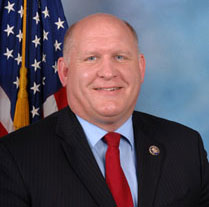WASHINGTON, D.C. – This week, the House Natural Resources Committee approved four bills that will improve and modernize the Endangered Species Act (ESA).
U.S. Rep. Glenn Thompson, a cosponsor of all four measures, is a member of the ESA Congressional Working Group, which developed the findings and recommendations for the proposals.
The measures seek to improve scientific and litigation transparency, enhance states’ role in species restoration, and cap government-paid attorneys’ fees under ESA-related litigation.
“The Endangered Species Act was first enacted to protect and recover key domestic species that are under threat of extinction. Although the ESA was written with the best of intentions, areas of the law hinder rather than enhance our ability to effectively manage ecosystems and conserve species as initially intended,” stated Thompson.
“The House Natural Resources Committee advanced a series of bills that promote greater transparency and accountability under the ESA while ensuring the ecological and economic needs of our local communities are being met.”
The four pieces of legislation approved by the Committee to enhance the Endangered Species Act are:
- H.R. 4315, 21st Century Endangered Species Transparency Act. Approved 17-15, the bill would require data used by federal agencies for ESA listing decisions to be made publicly available and accessible through the Internet. The bill would allow the American people to actually see what data is being used to make key listing decisions.
- H.R. 4316, Endangered Species Recovery Transparency Act. Approved 26-16, the bill would require the U.S. Fish and Wildlife Service to track, report to Congress, and make available online: 1) funds expended to respond to ESA lawsuits; 2) the number of employees dedicated to litigation; and 3) attorneys’ fees awarded in the course of ESA litigation and settlement agreements.
- H.R. 4317, State, Tribal, and Local Species Transparency and Recovery Act. Approved 26-16, the bill would require the federal government to disclose to affected states all data used prior to any ESA listing decisions and require that the “best available scientific and commercial data” used by the federal government include data provided by affected states, tribes, and local governments.
- H.R. 4318, Endangered Species Litigation Reasonableness Act. Approved 27-15, the bill would prioritize resources towards species protection and place reasonable caps on government-paid attorneys’ fees for suits filed under the ESA.



